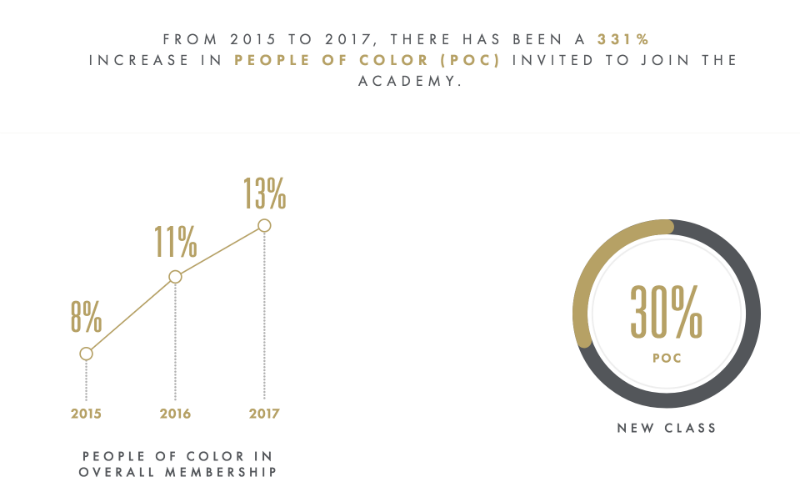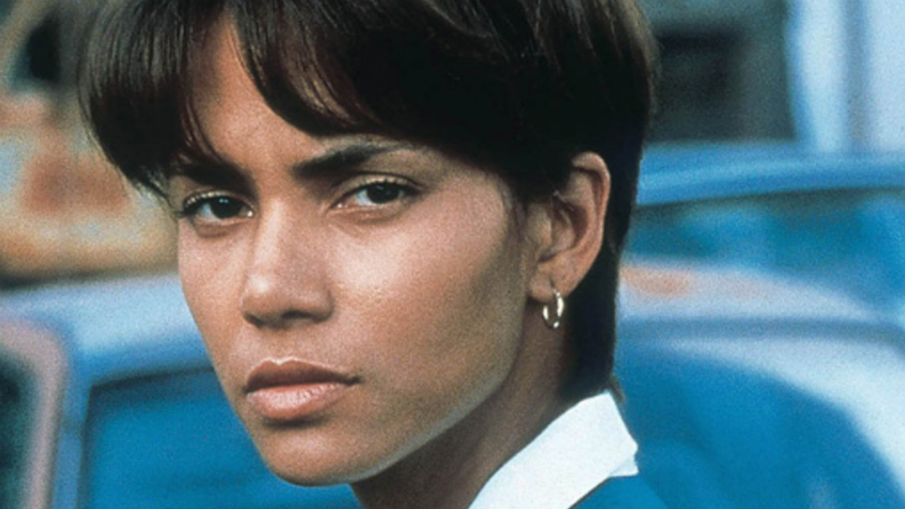In 2002, Halle Berry became the first woman of color to win Best Actress at the Oscars. She remains the only woman of color to win Best Actress at the Oscars.
“This is for every nameless, faceless woman of color who now has a chance because this door has been opened.”
Berry proclaimed this as she won her Oscar for Monster’s Ball in 2002. While this was a landmark moment for the black community and the Academy Awards, it has not resulted in a plethora of fresh, diverse faces in this category as Berry and many others may have hoped. Every Best Actress winner since then has been white, and only four black actresses have even been nominated, including Gabourey Sidibe for Precious (2009), Viola Davis for The Help (2011), Quvenzhané Wallis for Beasts of the Southern Wild (2012) and Ruth Negga for Loving (2016). Four other women of color have been nominated but also have not won: Salma Hayek for Frida (2002), Keisha Castle-Hughes for Whale Rider (2006), Catalina Sandino Moreno for Maria Full of Grace (2004) and Penélope Cruz for Volver (2006).
Teen Vogue Editor-in-Chief Elaine Welteroth sat down with Berry at the Cannes Lions International Festival of Creativity this past week and addressed her big Oscar moment and how disappointed the actress was by the lack of representation in the years that followed.
“It’s troubling to say the least,” Berry admitted, going on to reveal that after the Academy snubbed non-white actors completely in 2015 (and again in 2016), it was “one of my lowest professional moments.”
Berry’s Oscar speech was one of the most emotional in Academy history, especially because she thought she was going to lose.
“I remember how I don’t even know where that speech came from because I didn’t have a speech. I was pretty sure Sissy Spacek was gonna win [for In the Bedroom] so that was just what was ruminating in my spirit during that whole process and it just came out.” So many years later, she reflected on her speech and felt that nothing had really come of it.
“I sat there and I thought ‘wow, that moment really meant nothing. That meant nothing! I thought it meant something, but I think that meant nothing.’ And I was profoundly hurt by that and saddened by that.”
Despite eight actresses of color being nominated after Berry’s historic win, only one ever had a realistic shot of winning the Oscar, at least according to pundits — Viola Davis for The Help. Davis would finally get her time to shine in 2017, though it would be for Best Supporting Actress for Fences. Multiple black actresses have won Best Supporting Actress since Berry’s victory, including Jennifer Hudson for Dreamgirls (2006), Mo’Nique for Precious (2009), Octavia Spencer for The Help (2011), Lupita Nyong’o for 12 Years a Slave (2013), and Viola Davis this past year. While this is an indisputable achievement, it must be acknowledged that none of them were the stars of their respective movies. In 89 years of film history, how is it possible that only one (1!) actress of color in a leading role is worthy of Best Actress?
The Academy has made strides to fix its lack of diversity over the past two years, inviting more women and members of color than ever before. Last year they invited 683 new members, the most in Academy history, focusing on broadening their minority demographics from actors like Freida Pinto and John Boyega to musicians like Mary J. Blige and Will.i.am to directors like Ryan Coogler and James Wan. This may be part of what led to Moonlight‘s victory over La La Land, the theory being that people are more inclined to appreciate movies they can identify with (hence the stretch of time when voters kept awarding movies about the importance of show business).
On Wednesday, The Academy announced they were inviting even more members for 2017: 774 to be exact. They have expanded beyond artists will extensive backgrounds to include a younger demo, including Riz Ahmed, Adam Driver, Gal Gadot, Leslie Jones, Keegan-Michael Key, Kate McKinnon, Lin-Manuel Miranda, Jordan Peele, and more. The Academy is touting its increase in both women and minority voters:


This increase in women and people of color should ideally lead to further acknowledgement of stories outside the typical straight white cis male narrative that so often dominates the Oscars. This should allow for more overlap between Best Actress and Best Picture as well. So often we see Best Actor filled with stars from Best Picture nominees, like this year when Manchester by the Sea‘s Casey Affleck, Hacksaw Ridge‘s Andrew Garfield, La La Land‘s Ryan Gosling, and Fences‘ Denzel Washington each had their films nominated for Best Picture, while Best Actress only had La La Land‘s Emma Stone.
It’s especially dire for minority women in Best Actress. Since 1987, a full 30 years of Oscar history, there have only been three actresses of color nominated for Best Actress whose films were also nominated for Best Picture — Gabourey Sidibe for Precious, Viola Davis for The Help, and Quvenzhané Wallis for Beasts of the Southern Wild. Thankfully, this new membership, full of unique artists from diverse backgrounds, could be just what the Academy needs to help boost this shockingly low total, and possibly give Berry some company in years to come.
Possible nominees to look out for at next year’s Oscars:
Salma Hayek – Beatriz at Dinner (in theaters now)
Ahn Seo-hyun – Okja (on Netflix)
Daniela Vega – A Fantastic Woman (no set release date)

